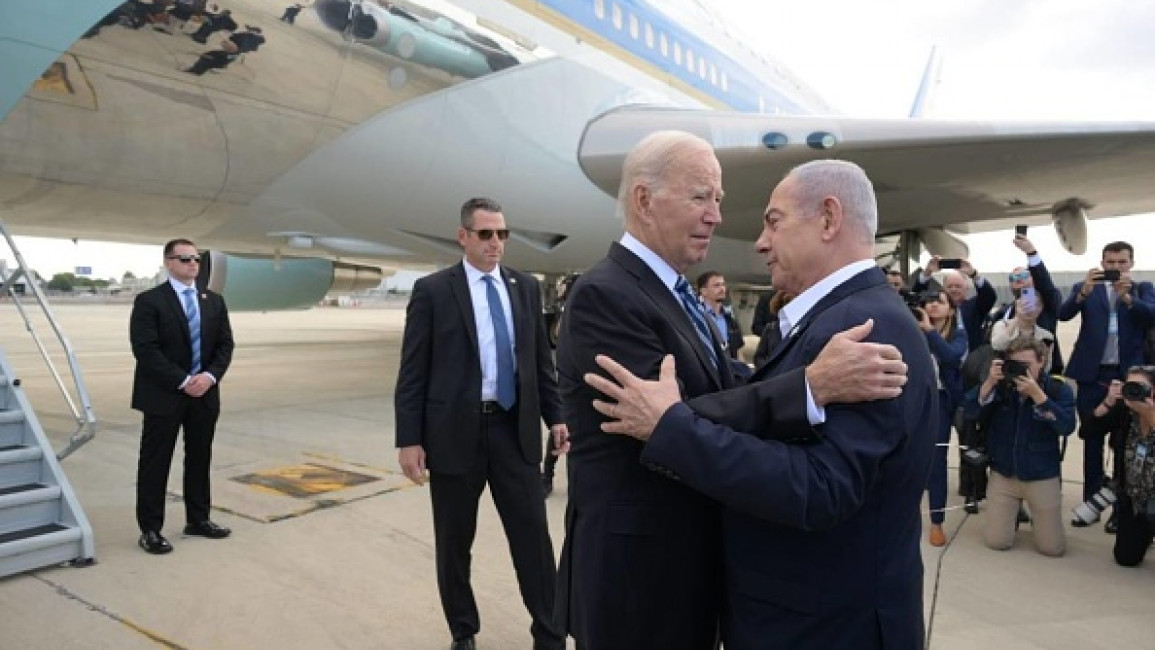What does Trump's name on the Michigan ballot mean for Arab and Muslim voters?
This week, Michigan's Supreme Court ruled that former US President Donald Trump will remain on the ballot in the 2024 general election.
For a swing state with significant populations of Arabs and Muslims, many of whom have promised to withhold their votes amid US President Joe Biden's support of Israel's war in Gaza, this could have a significant impact on the election.
"Biden's policies have been horrendous on the Middle East. Trump or Haley would be even worse," Wa'el Alzayat, CEO of Emgage, a Muslim voting advocacy group, told The New Arab.
He says that for Biden to win re-election, in Michigan and in other states with widespread frustration over US support for Israel's indiscriminate war on Gaza, he will need to make major changes in his positions as soon as possible.
"Biden needs to stop providing unconditional aid to Israel and he needs to support a ceasefire. If he doesn't do that, the longer he goes on supporting [Israeli Prime Minister Benjamin] Netanyahu, people will either not vote or will look for alternatives," said Alzayat.
"The president and his advisors are responsible if they lose the election. Our community has sounded the alarm. This policy may get Trump re-elected," he said.
Though Arabs and Muslims constitute a relatively small bloc of voters - 3.5 million and 3.45 million respectively - in the state-by-state electoral college, their votes have the potential to impact elections.
A poll by the Arab American Institute released in late October found that just 17 percent of Arab Americans polled said they would vote for Biden in 2024, down from 59 percent in 2020, a 42 percent drop.
In the 2020 general election, Michigan was one of the handful of swing states that played a key role in Biden's victory against Trump.
In Michigan, Trump won by 10,000 votes in 2016, and Biden beat him by 154,000 votes in 2020. There are 220,000 registered Muslim voters in the state.
Something that significantly helped Biden in 2020 was the grassroots campaigning of Rashida Tlaib, whose congressional campaign brought out Arabs and Muslims to the polls in numbers that hadn't been seen before. In 2020, more than 80,000 Muslim voters cast their ballots in Michigan, four times as many as in 2016, according to Emgage.
Michigan will likely play a similar role in the 2024 general election, though this time presumably with a much more difficult pitch by the Biden administration to the state's Arab and Muslim constituents.
"Biden should be engaging with local Arab and Muslim leaders and having hard conversations," said Alzayat. However, he emphasised, "It won't matter how much engagement they do if they continue to support the war in Israel."


![President Pezeshkian has denounced Israel's attacks on Lebanon [Getty]](/sites/default/files/styles/image_684x385/public/2173482924.jpeg?h=a5f2f23a&itok=q3evVtko)



 Follow the Middle East's top stories in English at The New Arab on Google News
Follow the Middle East's top stories in English at The New Arab on Google News


